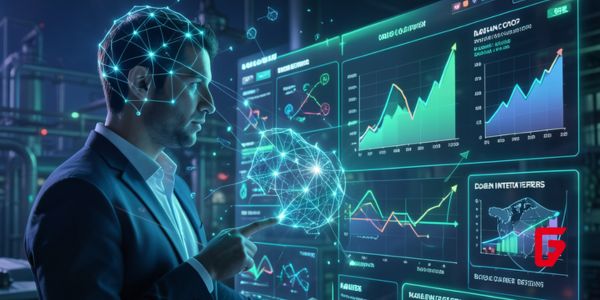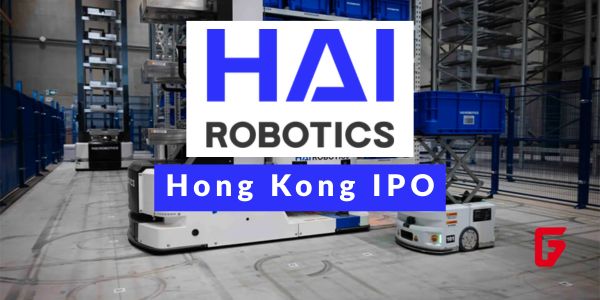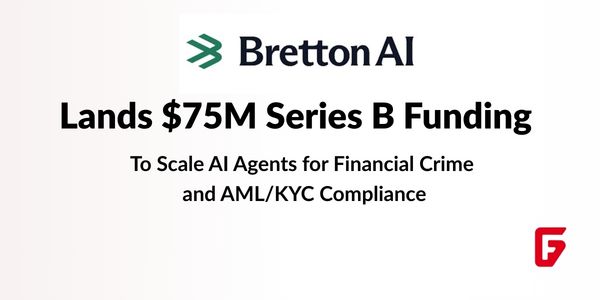Startups & Business News

Alexandr Wang’s rise as a transformative figure in artificial intelligence highlights the blend of visionary insight and relentless innovation shaping today’s technology landscape. From his early roots in a scientific community to becoming the youngest self-made billionaire in AI, Wang’s story is emblematic of the new era where data infrastructure fuels global AI advancement.
Early Influences and Bold Leap into Tech Entrepreneurship
Born and raised in Los Alamos, a town synonymous with scientific breakthroughs, Wang grew up surrounded by physicists and researchers, soaking in advanced scientific concepts from childhood. His academic prowess in math and computer science quickly surfaced, eventually leading him to MIT. Yet, sparked by the historic AlphaGo victory that demonstrated AI’s exponential progress, Wang made the courageous choice to leave MIT after just one year to build something groundbreaking.
His journey from a precocious student to a Silicon Valley entrepreneur began with an internship at Quora, where he met mentor figures and future collaborators. This formative period shaped his decisive attitude toward innovation: focusing on addressing real bottlenecks in AI rather than just advancing algorithms or hardware.

Building the Foundation: Solving AI’s Data Challenge
Wang identified a critical gap in AI development — the scarcity of high-quality, labeled training data — that was slowing the progress of machine learning projects. This insight led to the creation of Scale AI, a platform that combines advanced software with a global human workforce to efficiently prepare massive datasets for AI training.
Scale AI positioned itself as essential infrastructure for many cutting-edge technologies, including autonomous vehicles. By taking on complex data labeling at scale, Wang’s company accelerated the training and deployment of AI models in industries ranging from self-driving cars to military surveillance. Major partnerships with influential tech firms and the Pentagon cemented Scale AI’s role as a backbone of American AI capabilities.
Navigating the AI Geopolitical Race
Wang’s vision expanded beyond business as he recognized the broader strategic significance of AI in global power dynamics. After witnessing China’s rapid integration of AI into surveillance and military systems, Wang steered Scale AI towards supporting U.S. government initiatives intended to maintain technological advantage.
Working on projects such as Project Maven and providing AI-powered analysis of satellite imagery, Scale AI’s contributions moved into the national security arena, highlighting how AI innovation is now intertwined with geopolitical competition.
Shaping the GenAI Revolution and Future Horizons
As the AI ecosystem evolves with generative AI breakthroughs, Wang remains at the forefront, leveraging Scale AI’s data infrastructure to power the next wave of artificial intelligence. His approach emphasizes scalable, accurate data processing combined with smart algorithms, driving continuous improvements in AI capabilities.
At just 24, becoming the youngest self-made AI billionaire, Wang’s journey underscores how a combination of technical expertise, strategic insight, and bold execution lays the foundation for profound industry impact.
Alexandr Wang’s path illustrates that behind the flair of generative AI and algorithmic innovation lies the often underappreciated work of foundational data infrastructure. His story is a compelling testament to how addressing fundamental challenges can unlock exponential growth — a critical lesson for anyone tracking the future of AI technology and its global implications.

futureTEKnow
Editorial Team
futureTEKnow is a leading source for Technology, Startups, and Business News, spotlighting the most innovative companies and breakthrough trends in emerging tech sectors like Artificial Intelligence (AI), Robotics, and the Space Industry.
Discover the companies and startups shaping tomorrow — explore the future of technology today.
Most Popular
Trending Companies
Latest Articles

Dwelly Raises $93M to Supercharge AI-Powered UK Rentals Roll-Up
London startup Dwelly just landed $93M to snap up UK rental agencies and inject AI smarts. Founders from Uber and

Encord Raises $60M Series C: Fueling Physical AI Data Wave
Encord just landed $60M in Series C funding to supercharge data tools for physical AI. Founders Eric Landau and Ulrik

Foodforecast Raises €8M Series A to Slash Ultra-Fresh Food Waste with AI
Foodforecast, a Cologne AI foodtech firm, just scored €8M in Series A funding led by SHIFT Invest. Their tools predict

AI-Driven Operational Excellence: How Leaders Scale Ownership, Discipline, and Continuous Improvement in 2026
In 2026, AI scales operational excellence fundamentals—clear ownership, disciplined execution, and continuous improvement—letting leaders focus on outcomes while systems handle

VoiceLine raises €10M to scale voice AI for enterprise frontline teams
Munich-based VoiceLine has closed a €10M Series A round to grow its voice AI platform for frontline sales and service

AI-Driven Logistics & Distribution Transformation: From Insight to Scalable Impact
AI is redefining logistics transformation—from network design to real-time execution. This article explores how data-driven insight, intelligent automation, and scalable

Hai Robotics Hong Kong IPO: From Startup Funding to Warehouse Robot Leader
Shenzhen’s Hai Robotics, pioneer in ACR warehouse robots, files for HK IPO after raising over $500M in funding rounds led

AI-Enabled Process Engineering & Continuous Improvement: Designing Systems That Learn
Explore how AI transforms process engineering and continuous improvement into self-learning systems. This article explains how organizations can design operations

Ouster Acquires StereoLabs: Unified Physical AI Sensing Platform Launches
Ouster’s $35M StereoLabs acquisition fuses lidar and ZED cameras into end-to-end Physical AI sensing. Founders Cecile Schmollgruber and team drive

Bretton AI Lands $75M Series B Funding to Scale AI Agents for Financial Crime and AML/KYC Compliance
Bretton AI’s $75M Series B modernizes AML KYC compliance via AI agents, slashing staffing costs for banks and fintechs like

Axiom Space Raises $350M to Build Commercial Space Station and NASA Spacesuits
Axiom Space has locked in a fresh $350M raise to push its commercial space station and NASA lunar spacesuits toward

Santé Raises $7.6M Seed: AI Fintech Revolution for Wine and Liquor Retail
New York startup Santé secures $7.6M seed to build AI-powered POS for liquor stores, tackling regs & inventory woes after
futureTEKnow is focused on identifying and promoting creators, disruptors and innovators, and serving as a vital resource for those interested in the latest advancements in technology.
© 2026 All Rights Reserved.





